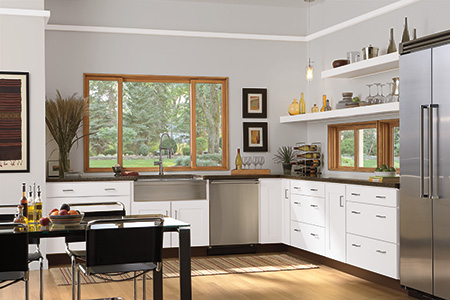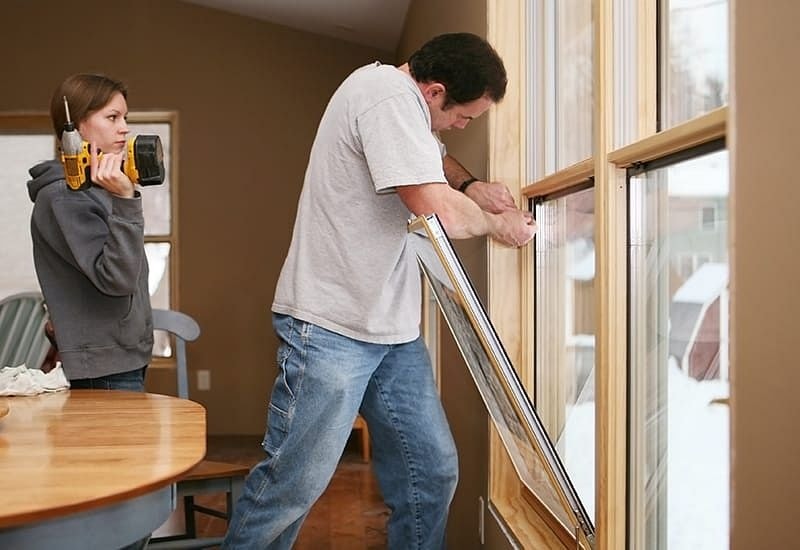Cypress Window Replacement Providers You Can Trust
Cypress Window Replacement Providers You Can Trust
Blog Article
Upgrade Your Home With Energy-Efficient Window Substitutes
In the realm of home renovation, the decision to update to energy-efficient home window substitutes can substantially influence both the performance and aesthetics of a home (Richmond window replacement). As house owners seek methods to enhance the efficiency and sustainability of their living spaces, the option of windows plays an essential duty in accomplishing these goals. Beyond the surface degree of simple aesthetic appeals, energy-efficient home windows offer a wide range of advantages that go past plain curb allure. With a mindful selection process that thinks about different variables, from glass types to setup methods, starting this home upgrade journey might verify to be a transformative undertaking.
Advantages of Energy-Efficient Windows

The installment of energy-efficient windows provides significant savings on energy costs while enhancing ecological sustainability. Additionally, energy-efficient home windows can help control dampness levels within the home, minimizing the risk of mold and mildew and mildew growth.
Past the financial benefits, energy-efficient windows contribute to environmental sustainability by lowering carbon emissions associated with power manufacturing. On the whole, spending in energy-efficient windows not just enhances the comfort and efficiency of a home but also aligns with eco aware techniques.
Kinds Of Energy-Efficient Glass
Different sophisticated types of energy-efficient glass offer one-of-a-kind residential properties that cater to different needs and choices in boosting the sustainability and effectiveness of buildings. Low-emissivity (Low-E) glass is a popular alternative made to lessen the amount of ultraviolet and infrared light that can travel through the glass, thereby reducing warmth transfer. This kind of glass assists preserve a consistent indoor temperature level, lowering the requirement for home heating or cooling systems, and eventually lowering power expenses. One more innovative alternative is spectrally discerning glass, which permits noticeable light to go through while blocking particular types of infrared radiation. This assists in keeping a comfortable interior atmosphere while minimizing warm gain. Triple-pane glass, containing 3 layers of glass with protecting gas in between them, gives improved thermal insulation, making it highly energy-efficient. In addition, self-cleaning glass with a special layer that breaks down and loosens up dust when subjected to sunshine can lower upkeep requirements and keep windows looking tidy. Each kind of energy-efficient glass uses distinct benefits, allowing house owners to pick the most ideal option based on their details requirements and objectives.
Factors to Consider When Selecting
When pondering energy-efficient home window substitutes, it is crucial to thoroughly evaluate certain variables that straighten with your sustainability objectives and desired energy savings. One essential aspect to take into consideration is the home window's power efficiency rankings, such as the U-factor and Solar Warmth Gain Coefficient (SHGC) The U-factor actions how well the window insulates, with lower numbers indicating far better insulation, while the SHGC suggests the window's capacity to investigate this site block heat from sunlight. Furthermore, the window frame product plays a substantial function in energy effectiveness. Materials like fiberglass, vinyl, or timber with thermal breaks are superb selections for minimizing warm transfer. One more important consideration is the window design and alignment worrying sunlight exposure. Picking the right home window style and strategically positioning them can make the most of natural light while decreasing warmth gain or loss. Finally, installation quality is vital to making certain the home windows do as intended. Correct installment assists prevent air leak, making certain optimum energy efficiency. By meticulously reviewing these variables, you can select energy-efficient home windows that improve comfort, reduce power expenses, and benefit the atmosphere.
Setup and Upkeep Tips

Regular upkeep is key to protecting the effectiveness of your energy-efficient windows. Inspect the weather-stripping and seals for any type of voids or tears and change them if required to keep the home windows' energy efficiency. Houston Pella windows.
Furthermore, lube relocating parts such as locks and hinges to make certain smooth operation. By adhering to these installation and upkeep tips, you can boost the energy efficiency of your home and lengthen the life-span of your energy-efficient home windows.
Cost-Benefit Evaluation of Upgrading

Energy-efficient windows are designed to minimize warmth transfer, lowering the demand for heating and cooling systems to burn the midnight oil. This can bring about substantial cost savings on energy costs, specifically in areas with extreme temperatures. In addition, energy-efficient home windows can enhance the overall worth of your home, making it sash window renovation a lot more attractive to potential customers if you make a decision to offer in the future.
When calculating the cost-benefit evaluation, consider the potential financial savings on energy bills, any kind of offered incentives or discounts, and the life expectancy of the home windows. While the first expense may be greater, the long-lasting savings and advantages of energy-efficient home windows make them a wise investment for home owners seeking to enhance their home's energy performance and value.

Conclusion
In verdict, upgrading to energy-efficient window substitutes uses their explanation various advantages such as minimized energy consumption, raised comfort, and price savings. By picking the proper sort of energy-efficient glass and taking into consideration variables like framework material and installation, homeowners can optimize the performance of their home windows. Normal maintenance and proper setup are crucial for long-lasting performance. In general, the cost-benefit analysis of upgrading to energy-efficient home windows reveals that the initial investment can cause significant savings in the future.
When pondering energy-efficient home window substitutes, it is necessary to carefully assess particular elements that align with your sustainability objectives and desired energy savings. The U-factor steps exactly how well the window insulates, with lower numbers indicating far better insulation, while the SHGC shows the home window's capability to obstruct warm from sunlight. By thoroughly assessing these elements, you can select energy-efficient home windows that boost comfort, decrease energy costs, and profit the setting.
While energy-efficient windows may have a greater ahead of time expense contrasted to standard windows, the long-term advantages commonly exceed the initial financial investment.In final thought, upgrading to energy-efficient window substitutes uses various benefits such as lowered energy consumption, raised comfort, and cost financial savings.
Report this page